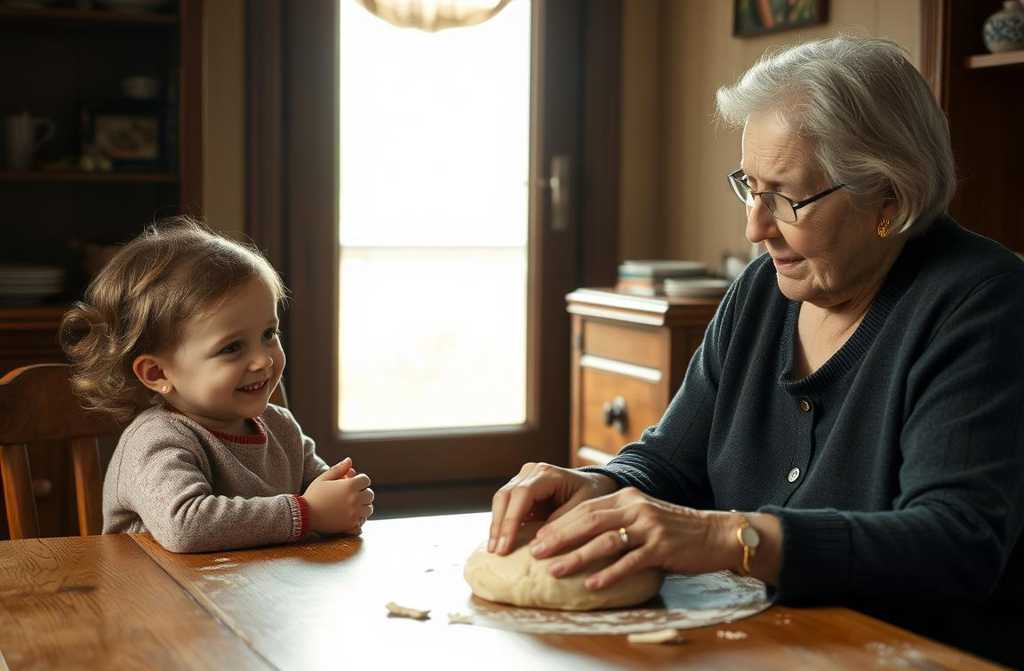**The Grand Prize**
Margaret Wilson became a widow at thirty-two, left with two children: a son named Oliver and a daughter called Emily.
She forbade herself from thinking of romance. All her untapped love poured into Oliver, her eldest. He was quiet, compliantthe kind of son she imagined would be her comfort in old age.
Emily, however, took after her fatherdreamy, impulsive, with a stubborn spark in her eyes. The girl refused to bend to her mothers rigid expectations. Their conversations often turned into clashes.
“You should be thinking about your future, not scribbling silly poems!” Margaret would snap, snatching the notebook from Emilys hands.
“And whats that future? Working at the factory like you? Just surviving?” Emily would shoot back.
Meanwhile, Oliver thrived under his mothers adoration. His mistakes were excused, his small victories treated as triumphs. He quickly learned: his mother would always take his side. Shed do anything for himas long as he kept her happy. He wasnt cruel. Just convenient.
Emily, worn down by the cold war at home, left at eighteen. She studied teaching, moved into student housing, and rarely visited. When she did, it always ended in shouting. Then, one day, she vanished entirely.
When neighbours asked, Margaret would glance away. Oliver, if pressed, shrugged. “She hated it here. Let her sort herself out.” He was married by then but still visited every Sundayfor a hot meal, a packed lunch to take home, and a little cash from Mum “for expenses.”
Five years passed.
Then, one day, Emily appeared on the doorstep. A small girl clung to her skirt, wide-eyed. Emily herself was gaunt, her cough so violent it seemed her ribs might crack.
“And whats this?” Margaret asked, icy.
Emily hadnt disappeared without reason. Shed hidden her pregnancy, knowing her mother would never approve. Shed worked two jobs, barely scraped by, until her health gave out. The doctors offered no hopejust a little more time. She needed someone to take care of little Rose.
And so the circle closed. Emily returned to the doorstep shed once fled.
Margaret let them innot out of love, but duty. “What will people say if I turn away my sick daughter and her child?” That was her real concern.
They settled in the smallest room. Emily faded slowly. But Rose, like a stubborn shoot through pavement, began to soften her grandmothers hardened heart.
Margaret found this child didnt fear her. Rose trusted her. Loved her. She brought Margaret scribbled drawings”for Granny Maggie”hugged her in the mornings, and patted her hand when she frowned. At night, if she had nightmares, she ran to Grannys bed, not her mothers.
Emily died quietly, as if shed never lived.
Now the flat held two women: one with everything behind her, the other with everything ahead.
And then, the ice cracked.
Margaret, whod spent a lifetime fearing weakness, found it in herself. She taught Rose to bake, shared family stories (carefully edited), and cried into her pillow, remembering how shed failed Emily. Loving Rose was painfula late, guilty love.
Oliver hated it.
“Mum, youll spoil her!” he grumbled when she bought Rose a new dress. “Were not made of money.”
“Im spending my own!” Margaret snappedthe first steel in her voice against him.
Years passed. Rose grew into the centre of Margarets world. Oliver visited less, his trips mere formalities. Yet he was certain the flat and the cottage were his by rights. His niece? “Not real family.”
Margaret noticed the way his eyes scanned the flat. The hints, after a drink, about “getting the paperwork sorted.” Her heart achedfor him. For the boy whod never grown up.
Her decision came quietly. No will to spark a feud after her death. Something wiser.
She took Rose to the bank and transferred her savingsnot a fortune, but a lifetimes careful pennies.
“Granny, I dont need this!” Rose protested.
“Hush,” Margaret said firmly. “Its not for you. Its for me. For peace of mind. So I know youll always have your own bread. So youll never depend on them.”
She suspected Oliver would pressure Rose over the flat and cottage. If he succeeded, at least shed have the money.
Oliver lived in a cramped ex-council flat on the outskirts of town, inherited by his wife, Linda. They scraped by, dreams of renovation long abandoned. The air was thick with resignation, as if time had stopped in the nineties.
His obsession was Mums three-bed in the city centrehigh ceilings, ornate mouldings. To him, it wasnt just brick and mortar. It was justice. A reward.
First, hed never left her side. Second, it was his right. He, the loyal son, had waited for it like a grand prize. His ticket to a better life. Pay off debts, maybe even save.
When the solicitor said Rose had equal claim, Oliver was stunned. Hed assumed he and his late sister were the only heirs (her share long absorbed in his mind). Splitting it with Rose meant half. Half wouldnt fix his problems. The cottage wouldnt sell for much.
So when inheritance was mentioned, his usual sullenness turned sharp.
“Shes got no right!” hed rant, pacing. “Thats my flat! Mums flat! Who does she think she is?”
Linda knitted silently. Shed heard it all beforehow Emily had poisoned their lives, then crawled back with her baggage.
Oliver measured everything in money. Yes, Rose helped Granny. But so had he! He brought groceries monthly, called the plumber, gave up his Sundays!
What had Rose done? Lived there. She couldve been in care.
For months, Oliver plotted to fight. He consulted lawyers, harassed Rose. Threatened to drag her through court if she didnt leave.
Then, after another ugly row, Rose surprised him.
She invited him and Linda for dinner. Set the table with Grannys favouritesthat same pie, the same soup.
“Uncle Oliver, Aunt Linda,” she said softly. “Ill give you my share of the flat. Its yours. Ive found a buyer for the cottage. If you agree, Ill take that money, leave, and never trouble you again.”
Silence. Linda stopped chewing. Oliver gaped.
“Youre joking. Its worth a fractionand why would I let you have the cottage?”
“Granny wanted me to have a start. The cottages worth far less, isnt it? And you dont need it. Take the deal. I wont waste time on court battles.”
She left the room. Oliver stared at the table. The fight was over. Hed won without lifting a finger.
The solicitor, braced for a feud, was pleasantly stunned when they signed the papers.
Rose, with Grannys savings and the cottage money, bought a small studioenough left for a nest egg. She often remembered that bank visit, grateful for the gift of independence.
And for freedom from family who only saw love as a transaction.
**The Lesson:**
Some prizes arent worth the cost. True wealth lies in the love we givenot the things we take.







